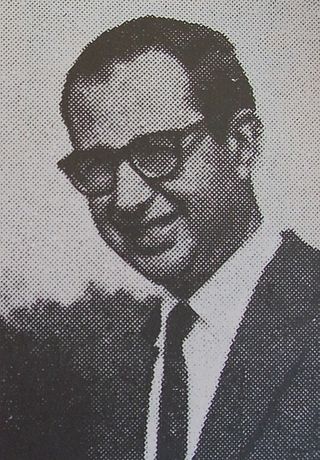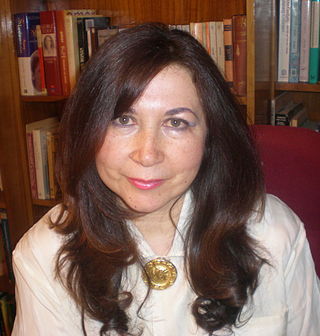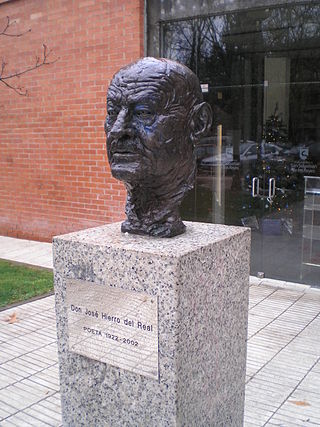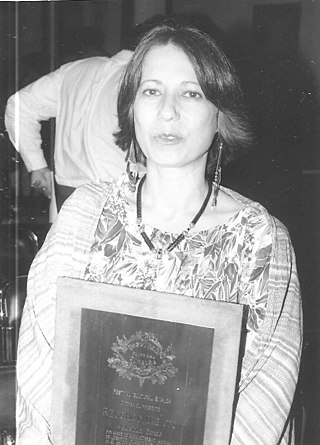
Noé Jitrik was an Argentine literary critic.
Margo Glantz Shapiro is a Mexican writer, essayist, critic and academic. She has been a member of the Academia Mexicana de la Lengua since 1995. She is a recipient of the FIL Award.

Lauro Zavala is a scholarly researcher, known for his work on literary theory, semiotics and film, especially in relation to irony, metafiction and micro-narratives. Faculty professor since 1984 at Universidad Autónoma Metropolitana, Xochimilco, in Mexico City, where he is head of the area on Intertextual Semiotics.

Ricardo Ernesto Montes i Bradley, poet, essayist, art historian, and literary critic and diplomat born on June 9, 1905, in Rosario, Argentina. He was Honorary Consul of México in Rosario, professor of Fine Arts, publisher, columnist and contributor in newspapers and literary magazines in Latin America. R-E Montes i Bradley held Doctorates in the Law, Diplomacy, History and International Law. He was an active member of the International Institute of Ibero-American Literature and the International Association of Critics; Correspondent Member of the National Academy of Arts and Literature of Cuba and of the National Academy of History and Geography of Mexico; Honorary Member of the Mexican Academy of Genealogy and Heraldry ; member of the Sociedad Argentina de Escritores (SADE); a member of the Círculo de la Prensa and the Colegio de Abogados de la Ciudad de Rosario; co-founded the Escuela de Bellas Artes de Rosario; member of the Asociación de Críticos de México. As publisher, he was responsible for the Boletín de Cultura Intelectual, which he also directed; the art magazines Revista Paraná and Cuadernos del Litoral were also the result of his commitment to journalism in the arts. The last two publications were dedicated to promote the works of local artist, writers, poets in the region known as Paraná, Rosario de Santa Fe and vicinity.
Consuelo Hernández is a Colombian American poet, scholar, literary critic and associate professor of Latin American studies at American University since 1995.
Francisco de Asís Monterde García Icazbalceta was a prolific and multifaceted Mexican writer whose career spanned over fifty years. He was an important promoter of the arts and culture in Mexico in the years following the Revolution.

Dequeísmo is a phenomenon in Spanish grammar, considered "wrong" in prescriptive works. It is the practice of using de que instead of que as the complementizer introducing a verbal complement clause. It can be seen as the opposite of queísmo, which involves using que when de que is to be used.
Arqueles Vela was a Mexican writer, journalist and teacher, of Guatemalan origin. He was one of the major members of the Stridentism movement and author of La señorita Etcétera (1922), one of the earliest avant-garde narrative works.
Julio Jiménez Rueda was a Mexican lawyer, writer, playwright and diplomat.

Beatriz Villacañas is a poet, essayist and literary critic.

José Hierro del Real, sometimes colloquially called Pepe Hierro, was a Spanish poet. He belonged to the so-called postwar generation, within the rootless and existential poetry streams. He wrote for both Espadaña and Garcilaso magazines. In 1981, he received the Prince of Asturias Awards in Literature, in 1998 the Cervantes Prize and he received many more awards and honours.
Blanca López de Mariscal or Blanca Guadalupe López Morales is a Professor emeritus and researcher in literature at Tecnológico de Monterrey, Campus Monterrey, México.

Esther Seligson was a Mexican writer, poet, translator, and historian. She was an academic, with a wide range of interests including art, cultural history, Jewish philosophy, mythology, religion and theater. She published books, poems, short stories and translations. She won the Xavier Villaurrutia Prize and the Magda Donato Award for her literary contributions.

Rosa María Beltrán Álvarez is a Mexican novelist, short story writer, essayist, and translator. She was the deputy director of La Jornada Semanal from 1999 to 2002 and has been a member of the Sistema Nacional de Creadores from 1997 to 2000. She was the director of the Literature department at the UNAM and is actually the chair in Coordinación de Difusión Cultural at UNAM. On June 12, 2014, she was appointed as a member by the Academia Mexicana de la Lengua as the 36th Chair, becoming the tenth woman to hold this position.

Marisol Ceh Moo is a Mexican Maya writer and professor, born in Calotmul, Yucatán, Mexico. She writes in Yucatec and in Spanish, and is known for her efforts to revitalize and protect the Yucatec Maya language. Her novel, X-Teya, u puksi 'ik'al ko'olel, is the first written by a woman in the Yukatek language.

Ida Rodríguez Prampolini was a Mexican academic, art historian and cultural preservationist, who was heavily involved in the creation of organizations and institutions to preserve the artistic traditions of Mexico. To that end, she founded two art schools, eleven museums, twelve municipal archives, and over fifty houses of culture. She published over 400 articles and critiques of Mexican art and was honored with numerous awards over the course of her career. She was a member of the Mexican Academy of Arts, Mexican Academy of History and the Belgian International Union of Academies as well as a recipient of the National University Prize, which recognizes excellence in teaching and academic research, in 1991. In 2001, she was honored with the National Prize for Arts and Sciences in the category of History, Social Sciences and Philosophy and in 2002, she was awarded the Calasanz Medal from the Universidad Cristóbal Colón.
Asmara Gay is a Mexican writer and translator. She is the editor of the magazine El Comité 1973 and member of the literary group "El Comité". In 2018 she was appointed Ambassador of the Spanish Language by the César Egido Serrano Foundation and the Museum of the Word.

Briceida Cuevas, also known as Briceida Cuevas Cob is a Mayan poet. She writes poems about everyday life in Yucatec Maya, many of which have been translated into Spanish, French and English. She is a member of Escritores en Lenguas Indigenas A.C., and a corresponding member of the Academia Mexicana de la Lengua.

Guadalupe Dueñas was a 20th-century Mexican short story writer and essayist.

Rosina Conde, is a Mexican narrator, playwright and poet.












